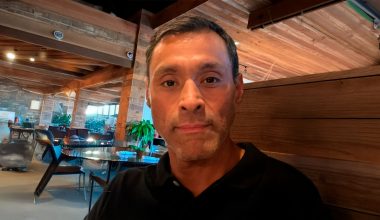The rapid expansion of solar energy brings both opportunity and complexity. Companies entering the space often find themselves wrestling with how to scale operations without compromising quality or customer satisfaction. It is a challenge that demands more than theory, it requires firsthand experience.
Jonathan Josh Cannon, founder of Cannon Solar, understands this better than most. His approach is rooted in the lessons learned from real-world growth. In just nine months, he scaled his company from completing three installations per month to more than 100, spanning 20 states. That kind of acceleration did not happen by chance. It came from building systems, developing people, and staying grounded in the realities of the work.
Building Solar Leadership Through Sales Grit
Jonathan’s path to solar leadership wasn’t conventional. Originally from Chicago, he started as energy deregulation door-to-door. “I got ridiculed for a long time for doing that, and people told me to get a more stable job. But it was just something about the entrepreneurial mindset that was so enticing to me,” he reflects. His journey included being homeless three times before building a company that generated $4 million in profit last year. “I literally am the American dream,” he states with conviction.
His first business began in his apartment at age 27 while struggling to pay rent. That operation eventually scaled into a seven-state conglomerate with over 70 sales agents, working with billion-dollar corporations such as Constellation Direct Energy. However, a critical lesson came when a major client cut commissions by 85% mid-quarter, dropping weekly revenue from $70,000 to just over $3,000. “I told myself the only way that I’m willing to move forward is if I’m able to run my own brand. And that’s when Cannon Solar was really born,” Jonathan explains.
Tackling Awareness and Affordability Gaps
Jonathan identifies customer awareness as the primary obstacle facing solar expansion. “People just don’t know we’re here. Many consumers are oblivious that solar is an affordable and realistic solution to their energy problems,” he observes. Energy costs continue rising as fossil fuel consumption depletes finite resources, while solar technology offers abundant earth-made materials that generate equivalent or more efficient electricity. The challenge extends beyond simple awareness to fundamental understanding of solar as a viable alternative. Traditional energy pricing follows supply and demand economics where scarcity drives costs higher, while solar technology provides a sustainable solution using renewable resources.
Three Strategies for Effective Expansion
Based on Cannon Solar’s rapid growth, Jonathan emphasizes three core strategies for successful solar expansion:
- Customer-First Approach: “You have to put the customer first. Understand that this is a customer-facing industry. The customer needs to get exactly what they want,” he states. This means honest communication about how solar products work and ensuring customers receive promised results. Transparency builds trust and creates lasting relationships essential for sustainable growth.
- Quality Materials and Installation: “Don’t just go with a vendor because they decided to give it to you for a low price. Go with products that are proven,” Jonathan advises. Quality encompasses everything from equipment selection to installation processes and customer interactions. Cutting corners on materials or workmanship ultimately damages reputation and customer satisfaction.
- Realistic Geographic Expansion: Rather than attempting nationwide coverage immediately, he recommends focused regional growth. “We’re in 20 states right now, and we had an option to actually go into 30, and we decided not to,” he explains. “We need to focus on the states that we’re in right now. That approach will help us hone in on the markets better, as opposed to just trying to take over the whole country.”
Embracing Technology While Maintaining Human Connection
Jonathan sees where technology is heading. “Our metrics are going to become much more specific and valid. We should be utilizing AI, especially for analytical tasks,” he says. Computers are better at engineering calculations and data analysis than people. But he’s not worried about AI taking over everything. “At the end of the day though, you can’t replace a human to talk to a customer,” he points out. The personal connection still matters.
He sees residential solar as just the beginning. “Residential is proof of concept. But where solar really becomes beneficial is on the large industrial side,” he explains. Big facilities already use massive amounts of electricity. For them, switching to solar isn’t about changing their operations, it’s about choosing a cleaner source for power they’re already using. He wants to see community solar grow too. These are bigger installations that can power entire neighborhoods, competing directly with traditional utility companies. “We need to start having community solar recognized as much as a utility company is because they’re producing the same type of electricity, just a different way,” Jonathan says.
Cannon Solar started 100% funded by he himself, no investors or venture capital. He kept complete ownership to stay true to his vision of putting customers first and keeping prices affordable. With flat pricing that’s among the lowest in the industry, he’d rather make solar accessible than maximize profits on each job.
Follow Jonathan Josh Cannon on LinkedIn for practical insights on scaling solar with integrity and grit.





